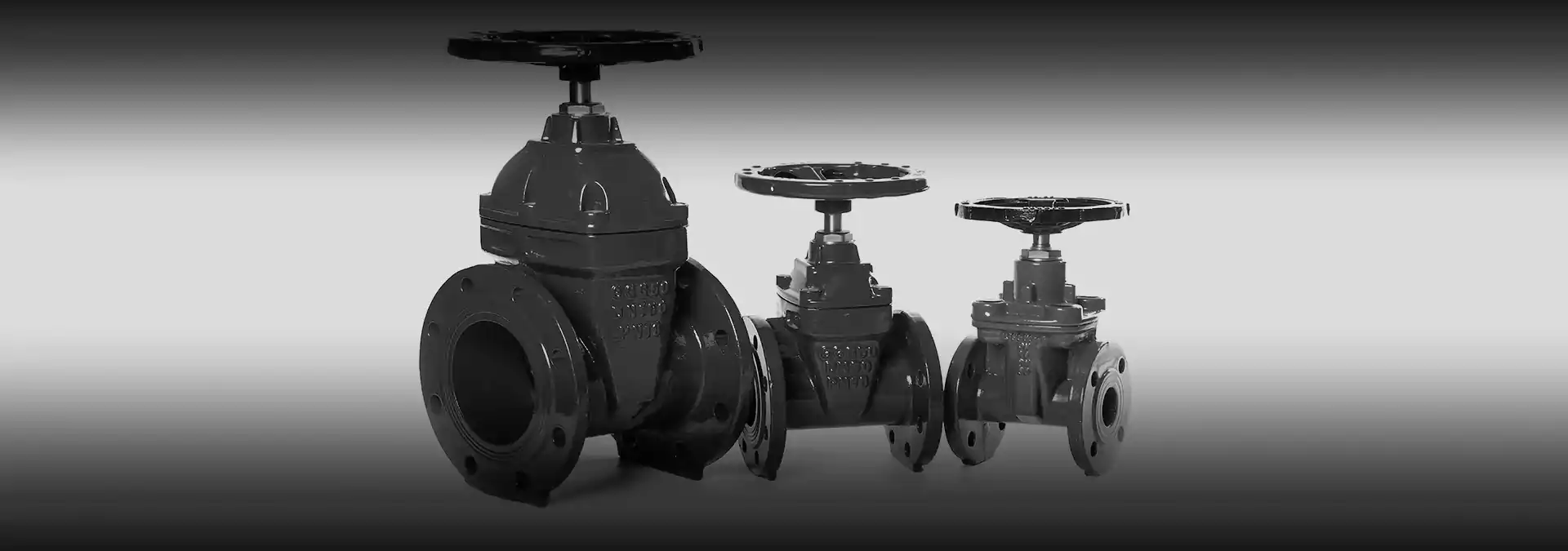Gerab National Enterprises have been gate valve suppliers in the UAE and Middle East markets for many years. We stock a wide variety of valves and due to our warehousing capabilities in the region, and preferential arrangements as gate valve distributors for some of the world’s most sought-after manufacturers, we are confident that we can supply your project’s requirements entirely to specification, even at short notice.
What is a Gate Valve?
The gate valve derives its name from the presence of a closure component known as a gate, which can stop the flow of fluid through the pipe.
Within the gate valve’s body, there is a vertical disc that moves up and down perpendicular to the pipe’s flow direction. This movement either opens or closes the valve, employing the wedge-lock effect of the disc to block the flow.
Gate valves are ideal for regulating flow by enabling full opening or complete closure. By turning the handle counterclockwise, the disc is raised, allowing the flow to pass through the valve. Conversely, rotating the handle clockwise lowers the disc, restricting the flow.
Types of Gate Valve
– Wedge Type.
– Parallel Expanding Type.
– Parallel Slab Type.
– Parallel Slide Type.
– Knife Edge Type (design standard MSS-SP-81)
Size and Class of Gate Valve the Gerab Can Supply
|
Size |
Class |
Body |
Bonnet |
Yoke |
Trim |
Ends |
Operators |
||
|
Stem |
Wedge |
Seat |
|||||||
|
1/2 ” to 48″ |
150, 300, 600,800 , 900, 1500, 2500 |
Normal Body |
Bolted, Welded &Pressure sealed. |
OS & Y |
Normal Stem/Extended Stem |
Solid, Flexible & parallel slide. |
Renewable ,Threaded& Integral |
RF, RTJ, BW, SW , NPT |
Handwheel, Gear, Chain & Motor operated. |
Gate Valve Standards
|
Valves Design |
API 600, API 6D ,API 603 , ISO 10434, ASME B16.34, BS 1414, API 6A & MSS-SP-81 |
|
End-to-End Dimensions |
ASME B16.10 & ISO 5752 |
|
Flanged Dimensions |
ASME B16.5 & ISO 7005-1 Part. 1 ASME B16.47 BS 3293 MSS SP-44 |
|
Butt weld Dimensions |
ASME B16.25 |
|
Visual Inspection |
MSS-SP-55 |
|
Pressure Test |
API 598, API 6D, B16.34, ISO 5208, BS 6755 Part. 1 & MSS –SP-61 |
If you’re looking for a reliable gate valve stockist, contact us here for more details.
Valves Type
| Size Range | Class Range | End type range | Standard/Specs |
|---|---|---|---|
|
|
|
|


